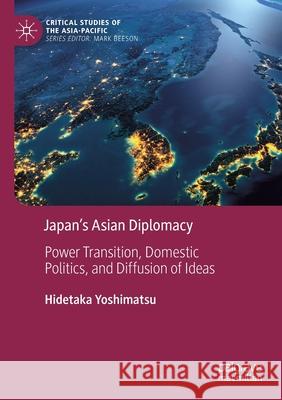Japan's Asian Diplomacy: Power Transition, Domestic Politics, and Diffusion of Ideas » książka
topmenu
Japan's Asian Diplomacy: Power Transition, Domestic Politics, and Diffusion of Ideas
ISBN-13: 9789811583407 / Angielski / Miękka / 2021 / 316 str.
Japan's Asian Diplomacy: Power Transition, Domestic Politics, and Diffusion of Ideas
ISBN-13: 9789811583407 / Angielski / Miękka / 2021 / 316 str.
cena 483,04
(netto: 460,04 VAT: 5%)
Najniższa cena z 30 dni: 462,63
(netto: 460,04 VAT: 5%)
Najniższa cena z 30 dni: 462,63
Termin realizacji zamówienia:
ok. 22 dni roboczych.
ok. 22 dni roboczych.
Darmowa dostawa!
Kategorie BISAC:
Wydawca:
Springer Verlag, Singapore
Seria wydawnicza:
Język:
Angielski
ISBN-13:
9789811583407
Rok wydania:
2021
Ilość stron:
316
Waga:
0.41 kg
Wymiary:
21.01 x 14.81 x 1.8
Oprawa:
Miękka
Wolumenów:
01
Dodatkowe informacje:
Wydanie ilustrowane











